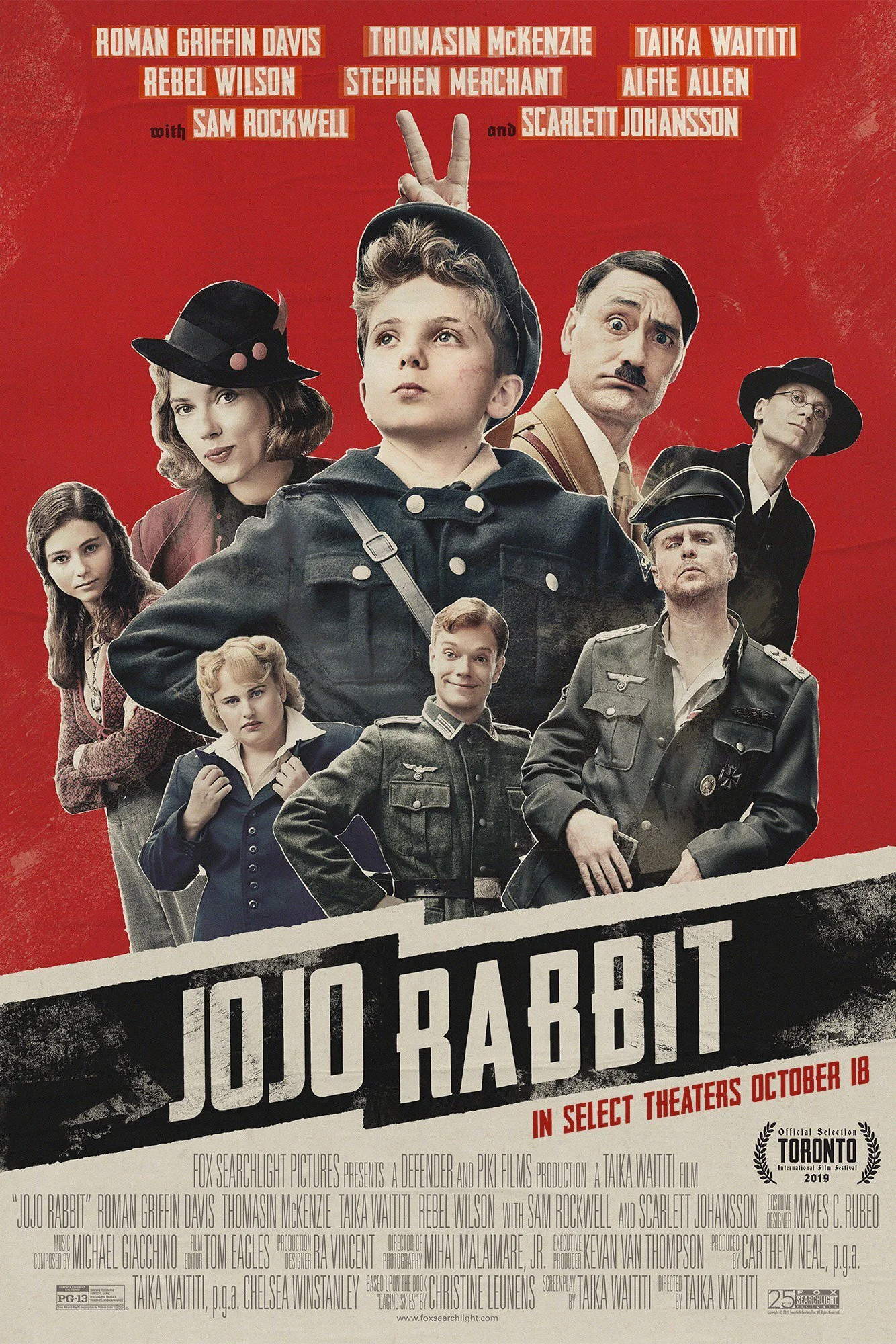Reflecting on Aryanism and Masculinity
Film poster from Fox Searchlight
By Jonathon Reed
Last week, I published a podcast episode about Islamophobia from the perspective of a 13-year-old, and I visited a friend’s condominium where I saw a notice asking residents to report any instances of anti-Semitism. Last night, I watched Taika Watiti’s Jojo Rabbit set in WWII. Today is the International Day of Commemoration in memory of the victims of the Holocaust.
So I’ve been thinking about white supremacy and violence this week. The first thing on my mind is a 1989 essay by John Stoltenberg in which he compares the idea of the Aryan race to the identity of the ‘male sex’:
“The idea of the male sex is like the idea of an Aryan race. The Nazis believed in the idea of an Aryan race—they believed that the Aryan race really exists, physically, in nature—and they put a great deal of effort into making it real. […] The Nazis inferiorized and exterminated those they defined as ‘non-Aryan.’ With that, the notion of an Aryan race began to seem to come true. That’s how there could be a political entity known as an Aryan race, and that’s how there could be for some people a personal, subjective sense that they belonged to it. This happened through hate and force, through violence and victimization, through treating millions of people as things, then exterminating them. The belief system shared by people who believed they were all Aryan could not exist apart from that force and violence.”
Stoltenberg’s analysis about the societal construction of sexual identity is thought-provoking in its own right, but for the moment I’m dialling in on that comparison between Aryanism and male identity—particularly the process of creating an identity through violence.
The second thing on my mind is the portrayal of pre-adolescent masculinity in Jojo Rabbit. Critics’ reviews of the film have dwelt more on the merits of anti-Nazi satire than the intersections between 10-year-old Jojo’s experience of powerlessness and his gravitation towards Hitler’s narrative of the powerful Aryan race. I’m not going to get into a full review of the film but I think it’s a rich portrayal of boyhood, the shaping influences of societal narratives and the roots of white supremacy and misogyny. Jojo grasps at power by defining himself in contrast to a more inferior identity—a pattern that continues in many ways today.
I’ll close by adding that I came across an article in Variety in which Holocaust experts discussed the potential of using a film like Jojo Rabbit alongside powerful materials like those at the Shoah Foundation to create an entry point for young people to engage with history. Worth thinking about.
ICYMI This Week
Can Masculinity Be Redeemed? (The New Yorker)
All Feelings Are For Everyone (A graphic by Elise Gravel shared on Twitter)
“Inside, I Really Feel Hurt” (Medium)
Written by Next Gen Men Program Manager Jonathon Reed as part of Learnings & Unlearnings, a weekly newsletter reflecting on our experiences working with boys and young men. Subscribe to get Learnings & Unlearnings delivered to your email inbox.

